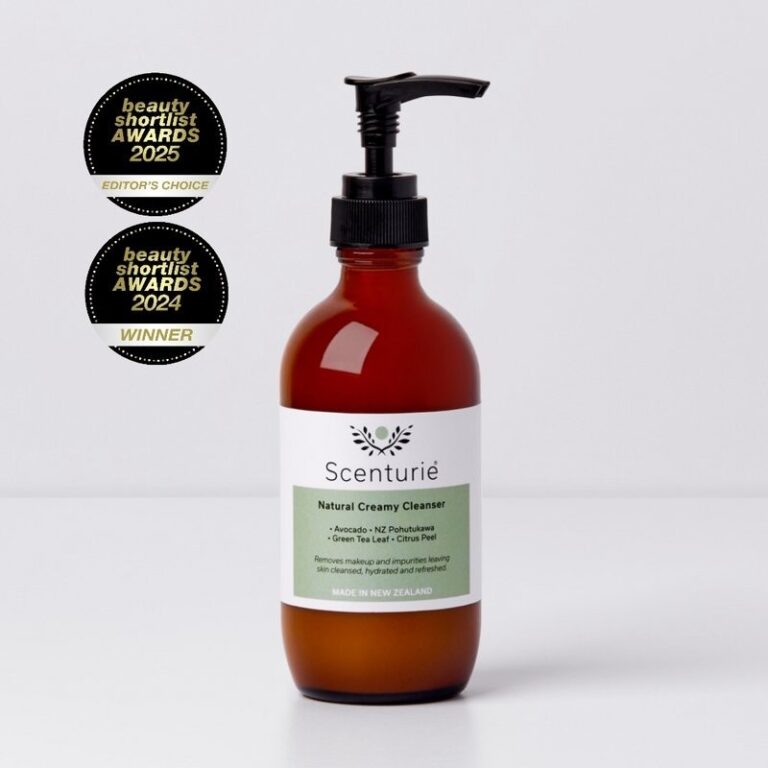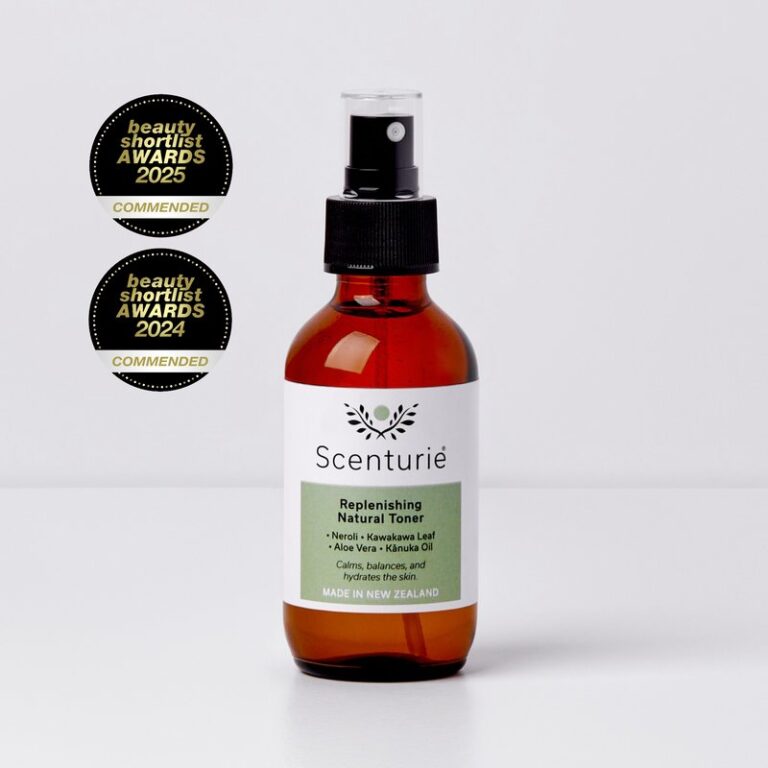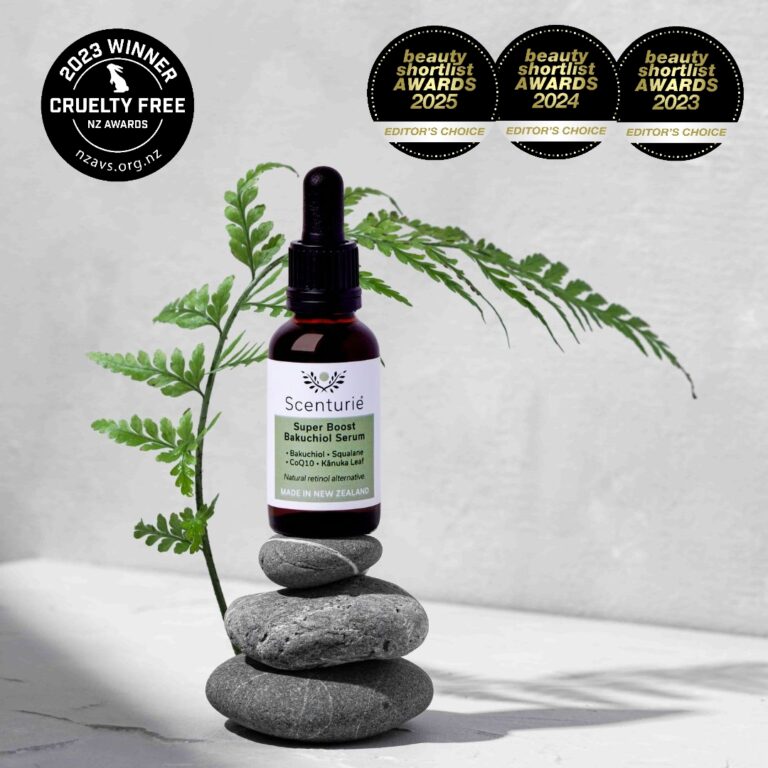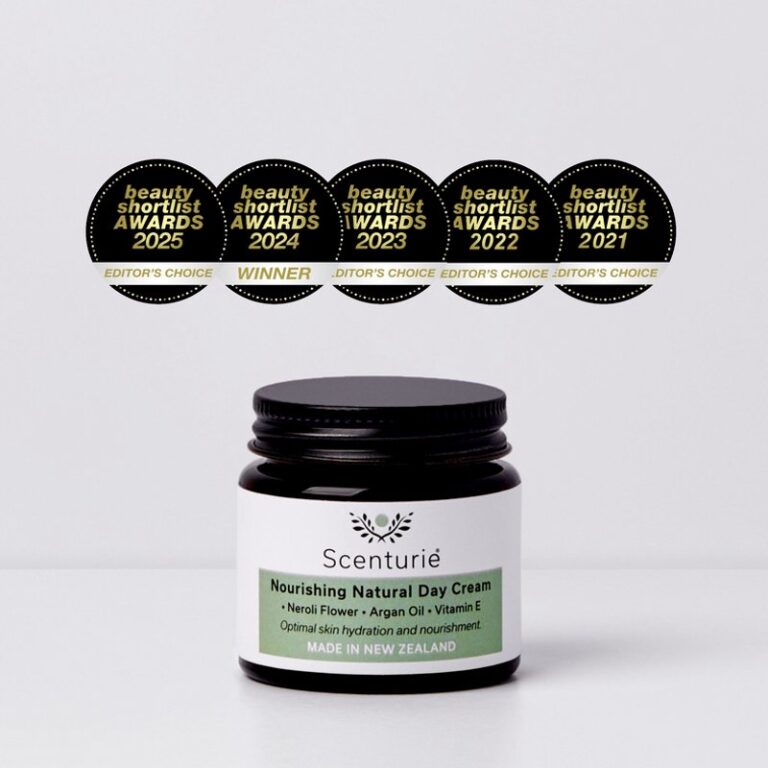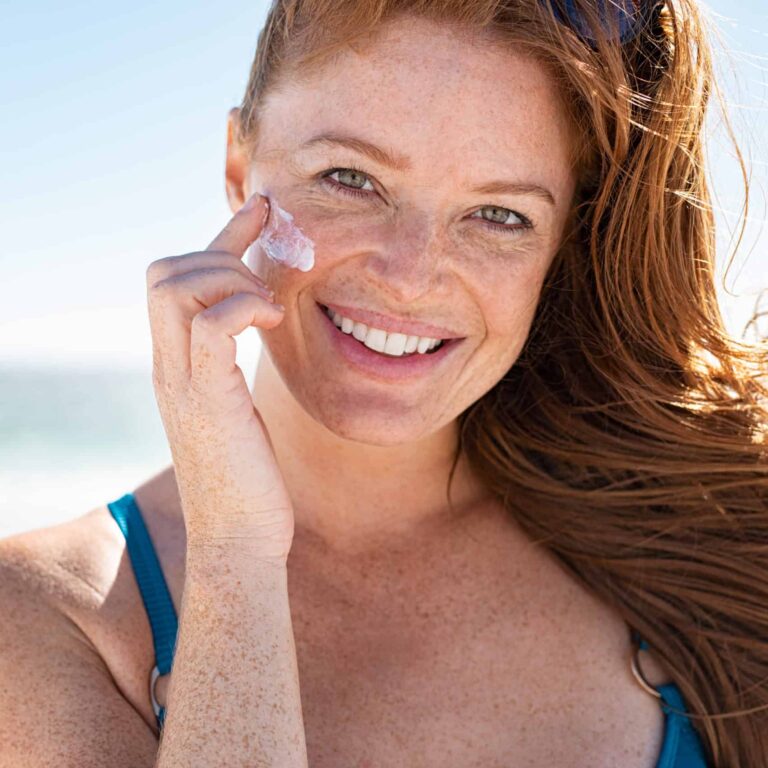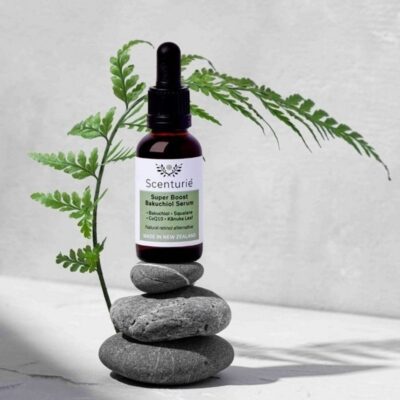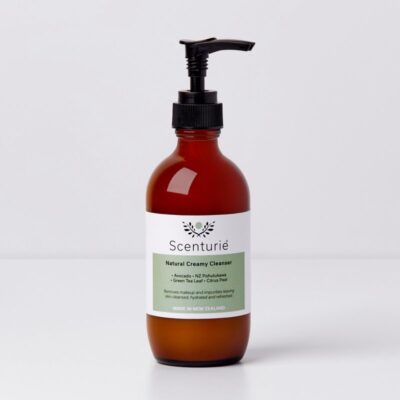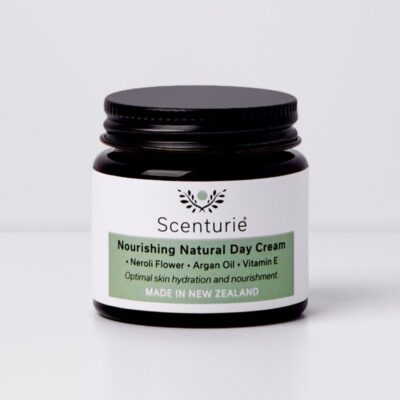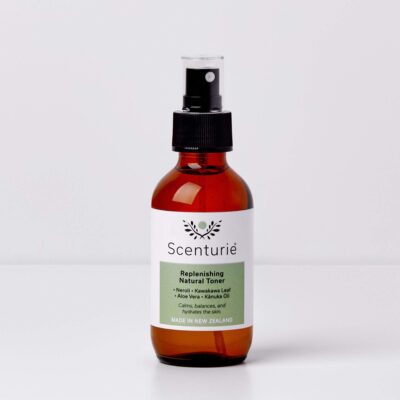The Ultimate Skincare Routine for Acne-Prone Skin in NZ
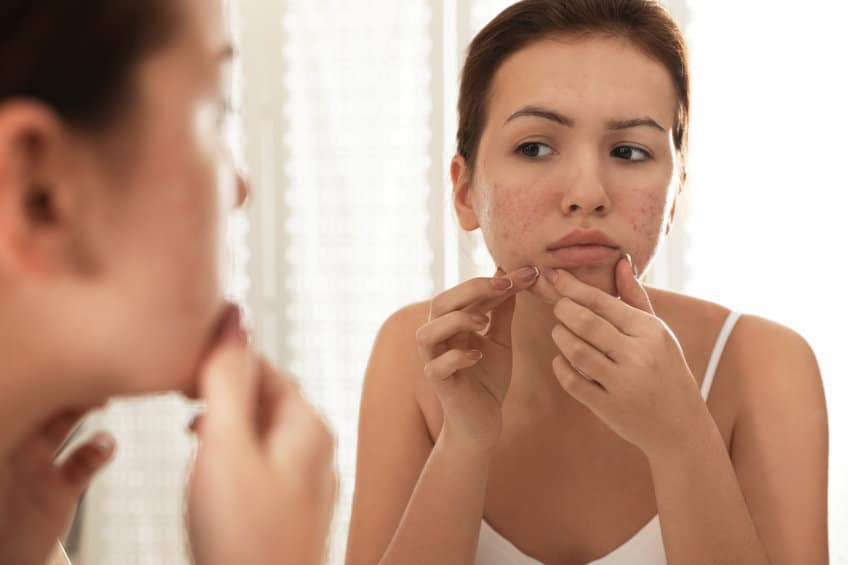
KEY TAKEAWAYS FOR ACNE PRONE SKIN:
Acne is caused by a mix of hormones, genetics, and NZ-specific environmental factors like strong sun and humidity.
A successful routine involves gentle cleansing, proper hydration, and daily SPF 30+ sun protection.
Look for non-comedogenic products with natural ingredients and avoid harsh irritants. Consistency is crucial for seeing results.
Navigating the challenges of acne-prone skin can be a frustrating journey, especially in New Zealand where our unique climate adds another layer of complexity. It’s a condition that goes beyond the teenage years, affecting adults of all skin types.
At Scenturie, we believe the key to managing acne is not about harsh, stripping products, but about a consistent, gentle routine that supports your skin’s natural balance. This definitive guide provides a proven, step-by-step routine and expert advice tailored to achieving clear, healthy skin in Aotearoa.
What are the Signs of Acne-Prone Skin?

The primary sign of acne-prone skin is the frequent and persistent appearance of breakouts. Recognising these characteristics is the first step toward effective management. You may experience:
Frequent Breakouts: Regular occurrences of whiteheads, blackheads, papules, pustules, or cysts.
Clogged Pores: Pores that readily become blocked with oil (sebum) and dead skin cells, leading to comedones.
Inflammation and Redness: Common irritation and swelling, especially around active breakouts.
Increased Sebum Production: Often, but not always, the skin has an oily or shiny appearance, particularly in the T-zone.
Post-Inflammatory Hyperpigmentation (PIH): Lingering dark spots after a pimple has healed, a common concern under the strong New Zealand sun.
What Causes Acne-Prone Skin in New Zealand?
Acne is caused by a complex interplay of internal and external factors, with our local environment playing a significant role.
Hormonal Fluctuations: This is a primary trigger. Changes during puberty, menstruation, and pregnancy can increase oil production, leading to clogged pores. Learn more about the role of hormones in acne.
Genetics: If your parents had acne, you have a higher likelihood of experiencing it yourself.
Environmental Factors: New Zealand’s environment is a major contributor. High humidity can increase oiliness, while our famously strong UV rays can worsen inflammation and the dark spots (PIH) left behind by healed pimples.
Pore-Clogging Ingredients (Comedogenics): Many conventional makeup and skincare products contain oils, silicones, or fragrances that can clog pores and trigger breakouts.
Stress & Diet: While the direct link is still being researched, clinical studies suggest that high stress levels and high-glycemic foods may worsen acne in some individuals.
Bacteria: The bacteria Cutibacterium acnes is a natural resident of our skin. When a pore becomes clogged with oil and dead skin cells, these bacteria can multiply rapidly, causing the inflammation we see as a pimple.
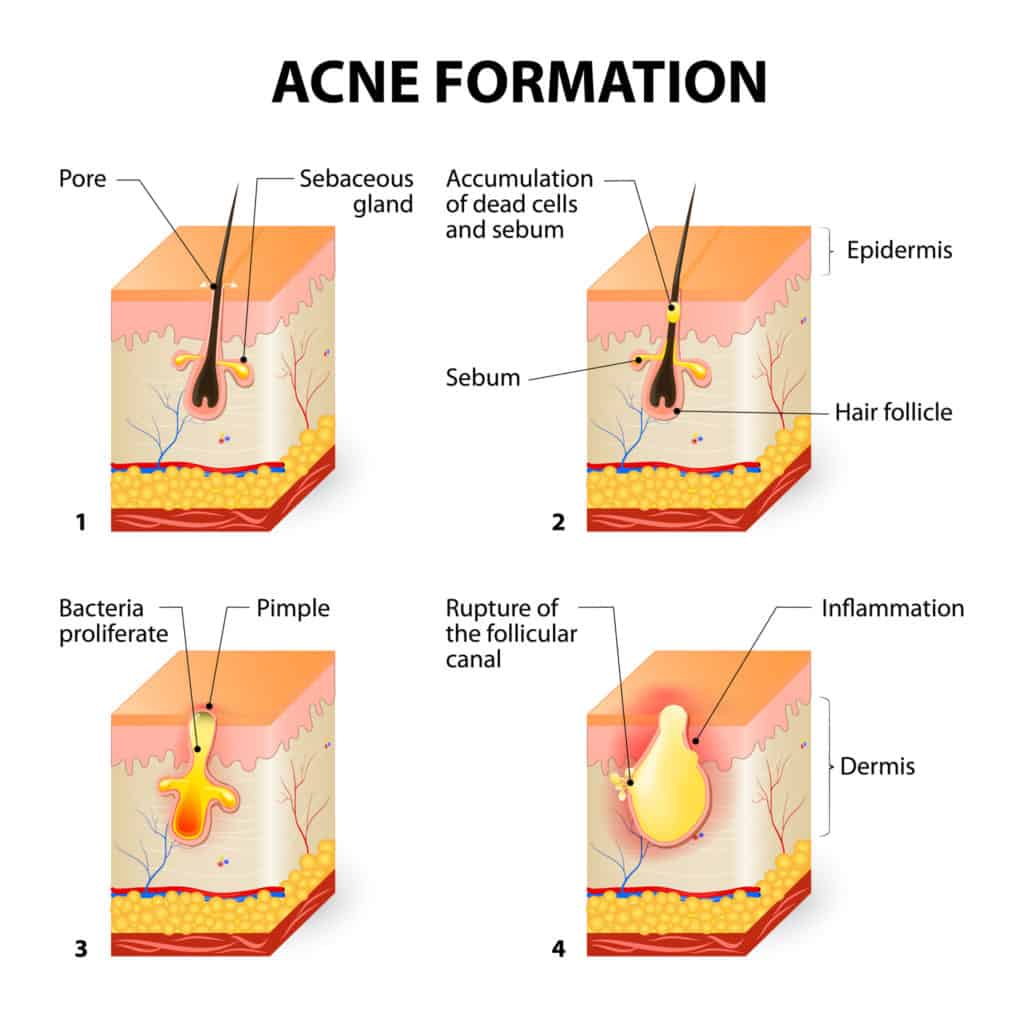
The Proven 5-Step Routine for Acne-Prone Skin
Consistency is the key to managing acne. This simple, effective 4-step routine, when performed morning and night, can help balance oil production, reduce inflammation, and prevent future breakouts.
Step 1: Cleanse Gently
The best way to cleanse acne-prone skin is to wash gently twice a day with a mild, sulfate-free cleanser. Over-washing or using harsh, stripping cleansers can damage your skin barrier, leading to increased irritation and oil production.
A formula with natural soothing ingredients, like our Natural Creamy Cleanser, is ideal for calming inflammation while effectively removing impurities without stripping the skin.
Step 2: Tone and Balance
After cleansing, use a gentle, alcohol-free toner to hydrate and restore your skin’s pH balance. Modern toners are not the harsh astringents of the past; they are hydrating formulas that prep the skin for the next steps. Using a toner helps to calm the skin and remove any last traces of impurities. Our Replenishing Natural Toner uses natural ingredients to soothe and hydrate, making it a perfect second step.
Step 3: Treat and Target
After cleansing, apply a targeted treatment to help unclog pores and reduce bacteria. Look for gentle yet effective ingredients. While traditional options can be harsh, natural alternatives are gaining recognition for their powerful results without irritation. Our Super Boost Bakuchiol Serum uses Bakuchiol, a plant-based alternative to retinol, to promote cell turnover and prevent clogged pores, making it an excellent choice for sensitive, acne-prone skin.
Step 4: Hydrate and Moisturise
Yes, even oily and acne-prone skin needs hydration. Skipping moisturiser can cause your skin to become dehydrated, prompting it to produce even more oil to compensate. The key is to choose an oil-free, non-comedogenic moisturiser that hydrates without clogging pores. A lightweight formula, such as our Nourishing Natural Day Cream, provides essential hydration while helping to balance the skin.
Step 5 (Morning Only): Protect from the Sun
Daily sun protection is the single most important step for acne-prone skin in New Zealand.
Sun exposure not only damages skin but also worsens the dark spots (PIH) left behind by old breakouts, making them last for months longer.
Always finish your morning routine with a broad-spectrum, oil-free sunscreen with an SPF of 30 or higher.
| Step | Morning Routine | Evening Routine |
|---|---|---|
| 1. Cleanse | Natural Creamy Cleanser | Natural Creamy Cleanser |
| 2. Tone | Replenishing Natural Toner | Replenishing Natural Toner |
| 3.Treat | Super Boost Bakuchiol serum | Super Boost Bakuchiol Serum |
| 4. Moisturise | Nourishing Natural Day Cream | Nourishing Natural Day Cream |
| 5. Protect | SPF 30+ Mineral sunscreen | N/A |
Frequently Asked Questions (FAQs)
- Q: What’s the difference between a blackhead and a whitehead? A: Both are types of clogged pores (comedones). A blackhead is an open pore where the trapped oil and skin cells oxidise and turn dark when exposed to air. A whitehead is a closed pore, where the clog is trapped under a thin layer of skin.
- Q: Is it okay to pop pimples? A: No, it’s generally not recommended to pop pimples. Picking or squeezing can lead to deeper inflammation, permanent scarring, and the dark spots known as post-inflammatory hyperpigmentation.
- Q: Are there any specific foods I should avoid if I have acne? A: While the link between diet and acne is complex, some people find that limiting high-glycemic foods (like sugar and white bread) and dairy products can help improve their skin. A balanced diet rich in fruits, vegetables, and whole grains is generally recommended.
- Q: What is the best way to treat hormonal acne on the jawline? A: Hormonal acne is often internal, but you can manage it effectively with the right topical routine. The key is to be consistent and gentle. Use a mild cleanser, avoid harsh scrubs that can increase inflammation, and apply a treatment serum with anti-inflammatory ingredients to help calm breakouts and prevent clogged pores.
- Q: How can I prevent acne scarring? A: The best way to prevent scarring is to avoid picking or squeezing breakouts. Treat pimples promptly with a targeted treatment, and most importantly, protect your skin from the sun every single day. Sun damage can significantly darken post-acne marks and make them last much longer.
- Q: How does the strong NZ sun specifically affect acne and scarring? A: New Zealand’s intense UV radiation has two major impacts on acne-prone skin. Firstly, it can increase inflammation and damage the skin barrier, potentially leading to more breakouts. Secondly, and most significantly, it dramatically darkens the red and brown marks (post-inflammatory hyperpigmentation) left behind by healed pimples, making effective daily sun protection non-negotiable.
- Q: How long does it take to see results from a new acne treatment? A: It can take 6-8 weeks of consistent use to see significant improvement in acne. Your skin needs time to adapt and for cell turnover to occur. Don’t give up on a product too quickly unless it’s causing obvious irritation.
- Q: How do I introduce new skincare products without causing a “purging” breakout? A: The key is to go slow. Follow these three steps:
Patch Test First: Apply a small amount behind your ear and wait 24-48 hours to check for irritation.
Introduce One at a Time: Use only one new product for at least 2 weeks before adding another.
Start Slow with Actives: Use products with active ingredients (like exfoliants or our Bakuchiol Serum) only 2-3 times per week at first, gradually increasing as your skin adapts.
- Q: Can I use oil on acne-prone skin? A: Yes, but it’s important to choose the right kind of oil. Non-comedogenic oils like jojoba oil or squalane can be very beneficial for acne-prone skin, as they can help balance sebum production and hydrate the skin without clogging pores.
- Q: What’s the difference between a serum and a moisturiser for acne-prone skin? A: Think of it as a two-step process: serums treat, and moisturisers protect. Serums are lightweight with concentrated active ingredients that penetrate deeper to target specific issues like clogged pores and inflammation. Moisturisers are thicker, hydrate the skin’s surface, and lock in the serum while protecting your skin barrier.
- Q: Is Bakuchiol really as effective as Retinol for acne? A: Studies have shown that Bakuchiol, a natural plant-based ingredient, provides results comparable to retinol in improving cell turnover, reducing hyperpigmentation, and calming acne. The major benefit is that Bakuchiol is much gentler and does not typically cause the irritation, redness, and sun sensitivity often associated with retinol, making it an ideal choice for sensitive, acne-prone skin.
Want a deeper dive into specific ingredients? For a complete guide to calming breakouts with nature-based solutions, read our popular blog post: “Beyond Benzoyl: Why a Gentle Approach is Key to Clearing Acne.“
Shop the Recommended Routine
Ready to get started on your journey to clearer skin? These are the core products recommended in this guide.
-
Super Boost Bakuchiol Serum | 30mL
$64.99Select options This product has multiple variants. The options may be chosen on the product pageRated 5.00 out of 5 -
Natural Creamy Cleanser | 195mL
$52.99Select options This product has multiple variants. The options may be chosen on the product pageRated 5.00 out of 5 -
Replenishing Natural Toner | 100mL
$44.99Select options This product has multiple variants. The options may be chosen on the product pageRated 4.96 out of 5

